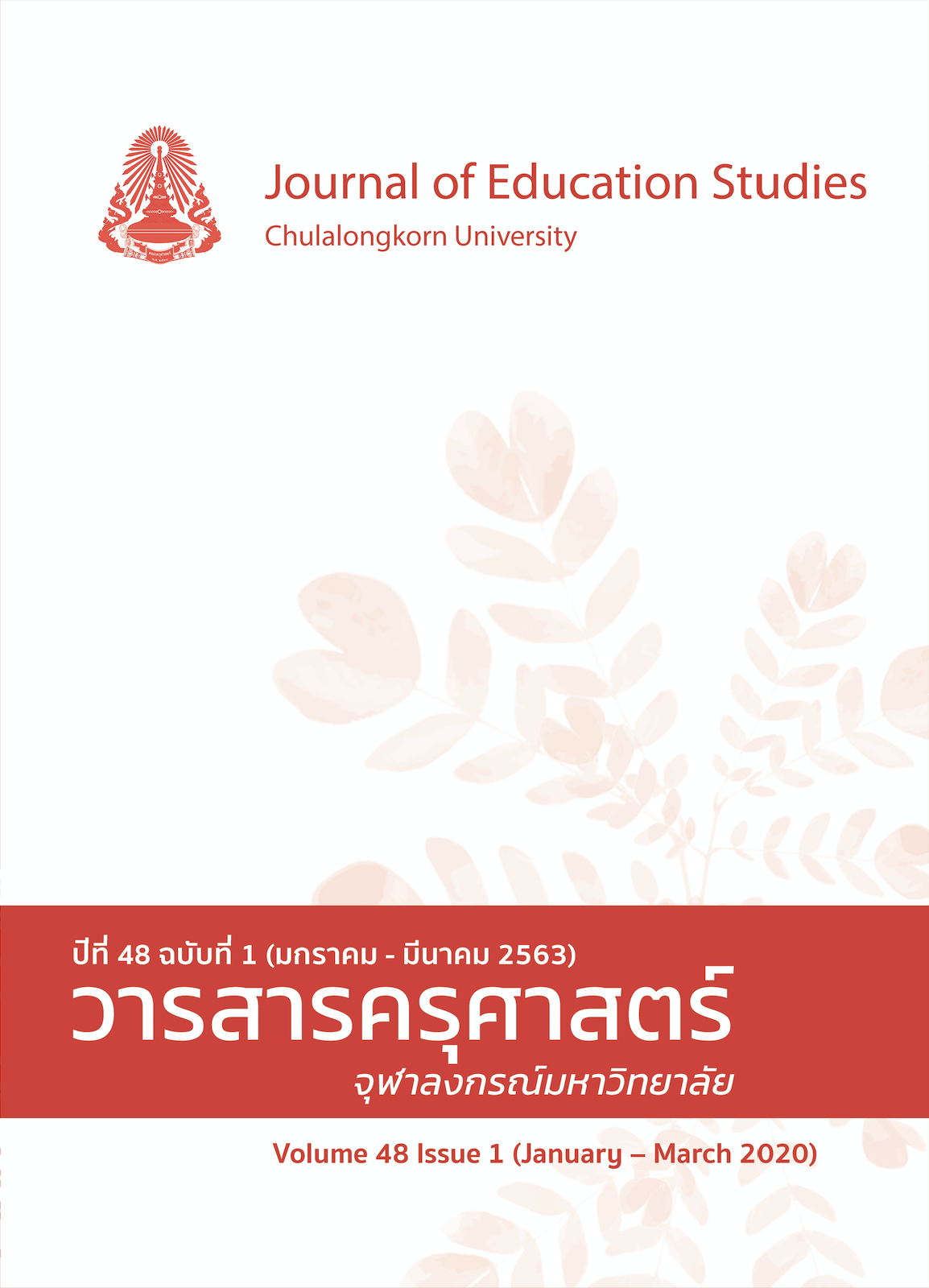Development of System Management and Participatory in Autonomous School
DOI:
https://doi.org/10.14456/educu.2020.77Keywords:
autonomous school, area-based, management in education, participatory in education managementAbstract
The three objectives of Participatory System in Area-Based Management in Education were to: 1) study and compare autonomous school models in different countries, 2) analyze lessons learned from case studies in Thailand that use autonomous school models in administration and management, and 3) propose development strategies of education management in the education system and enhance participation. This research used a mixed method research design consisting of documentary research, interview, focus group and survey research. The results based on the objectives can be described as follows: 1. The models of autonomous school are different in each country; 2. schools that use autonomous school models are under the same laws and regulations but differ in implementation and all faced various obstacles; and 3. the development strategies of education management in the education system to enhance participation are comprised of six main strategies, 15 secondary strategies and 49 measures. Success factors are divided into 2 parts: external factors and internal factors. There are several cooperation models of area-based management in education such as the readiness model, network model, area-based model, partnership model and autonomous model.
Downloads
Published
How to Cite
Issue
Section
License

This work is licensed under a Creative Commons Attribution-NonCommercial-NoDerivatives 4.0 International License.




